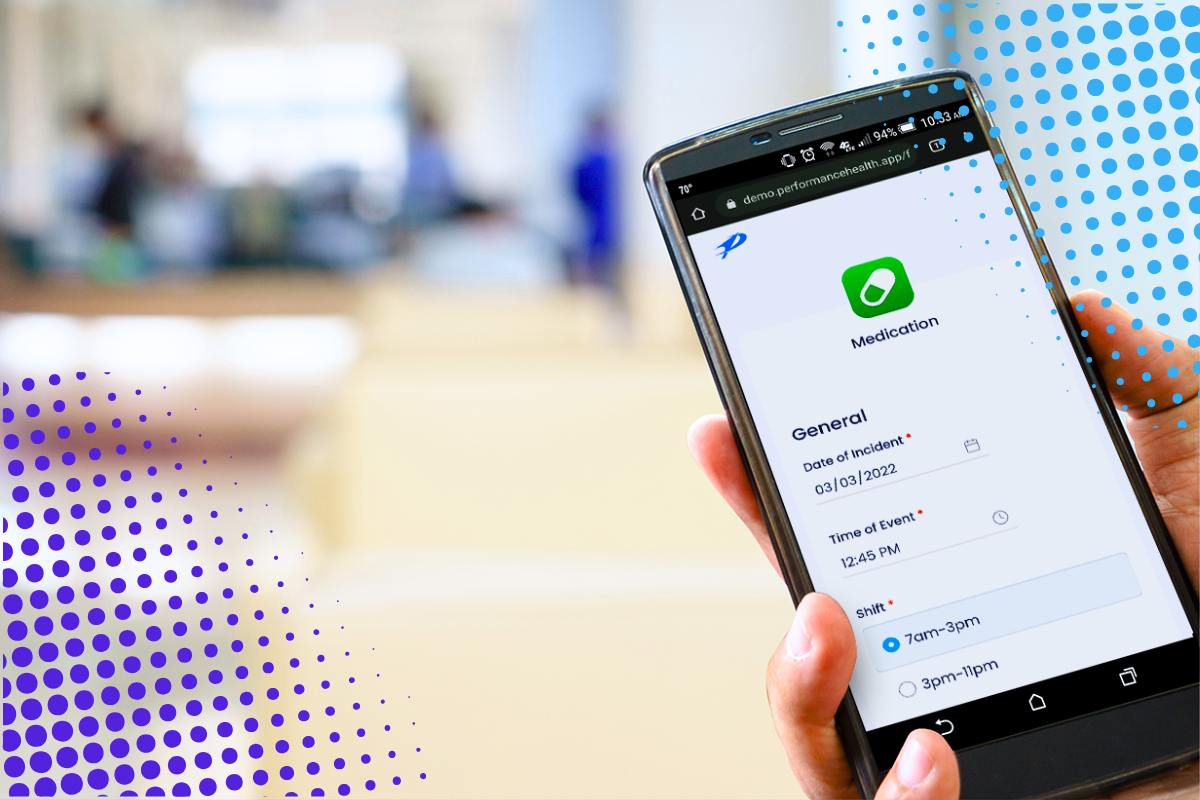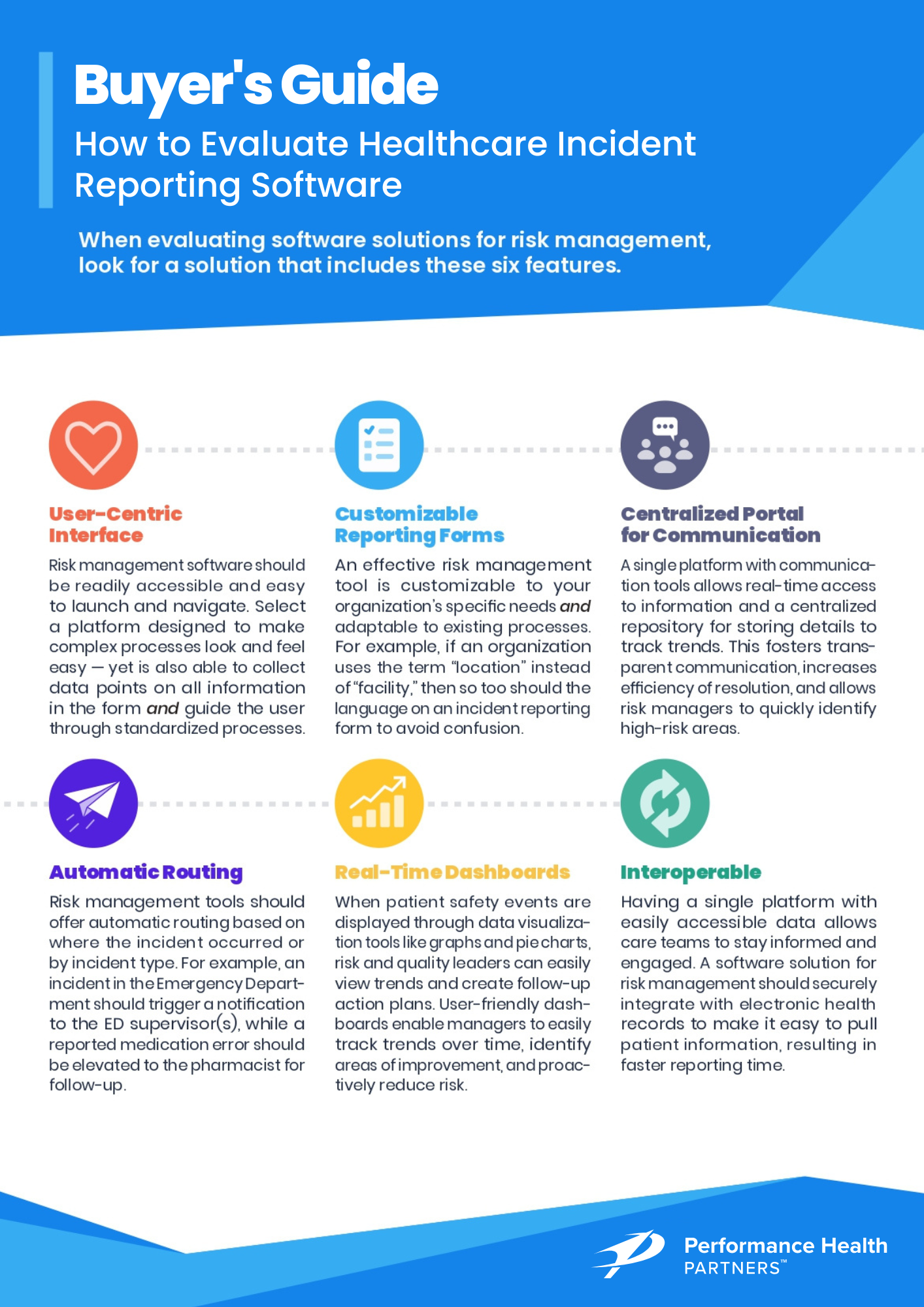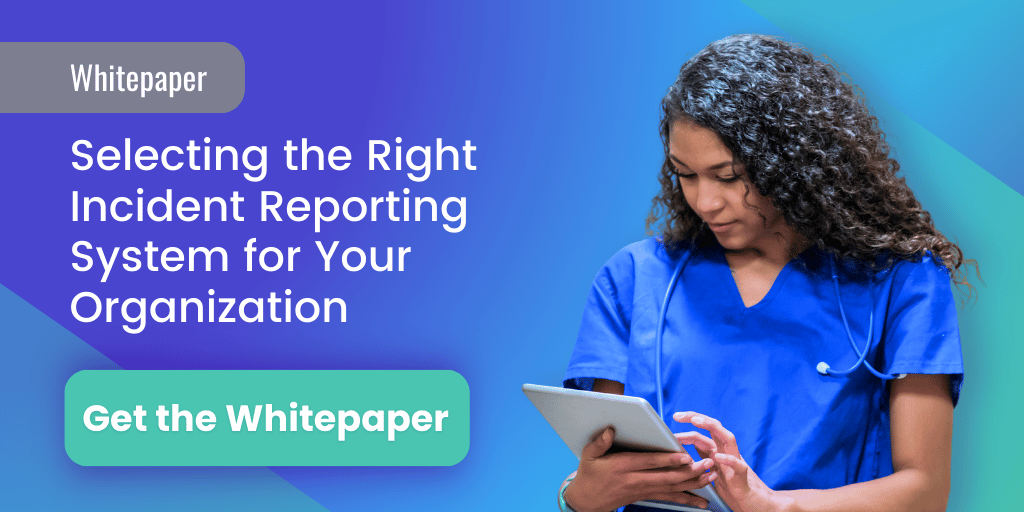3 min read
Healthcare Incident Reporting Software: 11 Features to Look For
Performance Health Partners
June 4, 2023

Implementing incident reporting software can significantly improve patient care, enhance operational efficiencies, and promote organizational growth. But not all systems are created equal. That’s why it’s important to choose the right solution to fit your organization’s specific needs and overcome its unique challenges. Read on to learn what to look for in a healthcare incident reporting software.
Questions to consider when looking for healthcare incident reporting software
Searching for an incident reporting software can feel overwhelming, to say the least. With so many options to choose from, it can be challenging to determine which system might be best for your organization. And while most systems out there are designed to facilitate incident reporting, few are flexible and customizable enough to meet the unique demands of organizations of varying types and sizes.
So, as you evaluate different vendors, consider asking the following 11 questions to ensure the product you’re signing up for is equipped with the features necessary to help your organization meet its goals.
Will all staff be able to easily use the system?
Healthcare incident reporting software should be readily accessible and easy to launch and navigate. Select a platform designed to make complex processes look and feel easy — yet is also able to collect data points on all information in the form and guide the user through standardized processes.
Is the healthcare incident reporting software customizable?
An effective system doesn’t just come with pre-set questions and form fields; rather, it is customizable to organizations’ specific needs and adaptable to existing processes and terminology. For example, if an organization uses the term “location” instead of “facility,” then so too should the language on an incident reporting form to avoid confusion.
Is there a centralized portal for communication?
A CRICO study found that communication problems in healthcare settings result in thousands of malpractice claims, preventable deaths, and millions of dollars in hospital costs every year.
A single platform prevents breakdowns in communication by allowing real-time access to information and a centralized repository for storing details to track trends. This fosters transparent communication, increases efficiency of event resolution, and allows risk managers to quickly identify high-risk areas.
Will you need to train your staff how to use the new incident reporting system?
Healthcare professionals are often pulled in many directions all at once, leaving limited time for training on new technology. Selecting an Incident Reporting System that offers comprehensive training (like Performance Health Partners’), either through step-by-step guides or a video series, is a time-effective way to shorten the learning curve for staff.
What are the reporting capabilities?
Can the healthcare incident reporting software generate ad hoc healthcare reporting? Or is it limited to a series of pre-set reports? Another key reporting element to think about is whether data can be easily sorted and filtered within the system. You should consider whether reports can be easily converted into multiple file formats (such as Word, PDF, Excel, etc.).
Is there automatic routing?
A healthcare incident management software should offer automatic routing based on where the incident occurred or by incident type. For example, an adverse event in the Emergency Department should trigger a notification to the ED supervisor(s), while a reported medication error should be elevated to the pharmacist for follow-up.

Is the software HIPAA secure?
Many incident reporting systems are not built specifically for healthcare. Using a HIPAA-compliant incident reporting system for adverse event reporting is critical to protect sensitive data, especially as data breaches continue to increase in number. Similarly, it’s important to consider where a vendor’s data is stored; ideally, data should never leave the United States.
Is the solution outcome focused?
When choosing an effective healthcare incident reporting software, be sure that the tool is focused on outcomes. After all, a technology solution is only as good as the outcomes it delivers. So, it's vital to select a product that will work collaboratively with your team to define measures and processes that will achieve the best possible operational, financial, and clinical results.
Does the incident reporting system play well with others?
It is also essential that all technology systems, including EHRs, can exchange data with the reporting system to facilitate the reporting process and ensure speedy follow-up. Be certain that the incident management system you’re considering is able to easily integrate with your organization’s EHR system for easy input of patient demographic information and adverse event reporting.
Is the incident reporting system an enterprise-wide solution?
Does the system allow your team to manage different applications in a single platform, or will you need to assemble multiple solutions? Enterprise-wide solutions offer organizations the ability to combine applications such as employee safety, patient relations, and quality and performance improvement all in one place, making it easier to deliver the highest form of care.
Does the vendor offer support post-implementation?
The need for communication doesn’t stop after implementation. Choosing an incident reporting software that offers ongoing support after the implementation process is complete is a must. Ask potential vendors not only what their timeline is for implementation but also how your team can contact them afterward for support.
Keeping these key questions in mind can help healthcare organizations choose the right incident reporting system for their unique needs and help them grow and scale more efficiently over time.
Interested in learning more about how Performance Health Partners’ healthcare incident reporting software might be a good fit for your organization? Request a free demo here.


